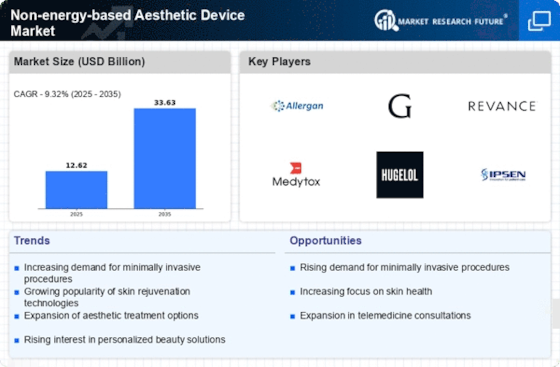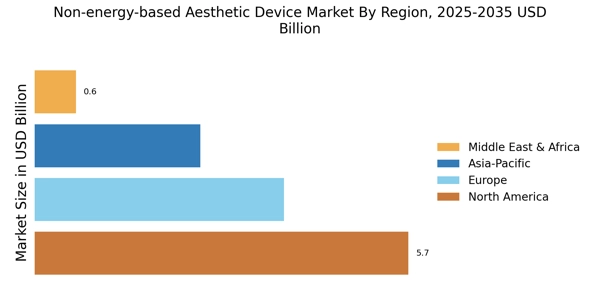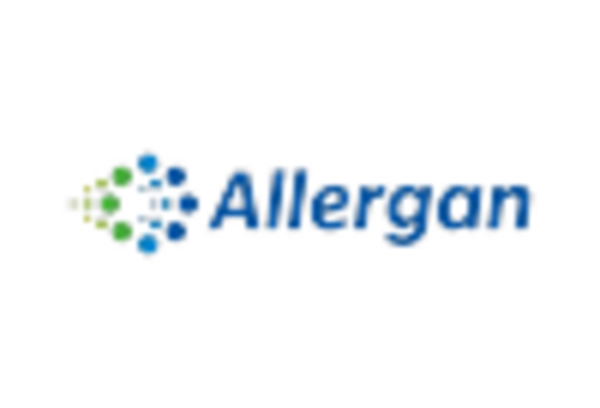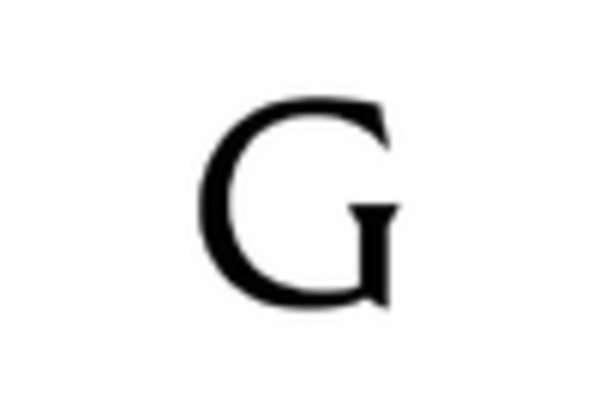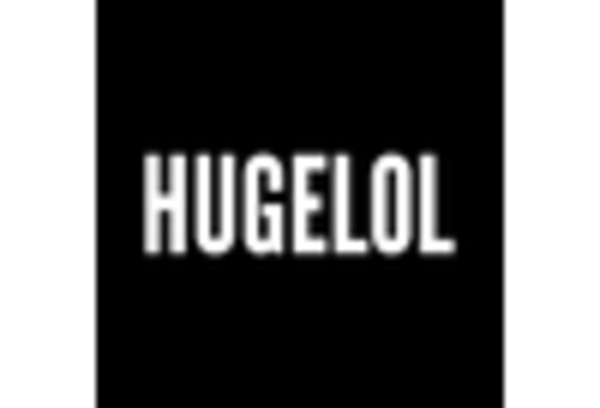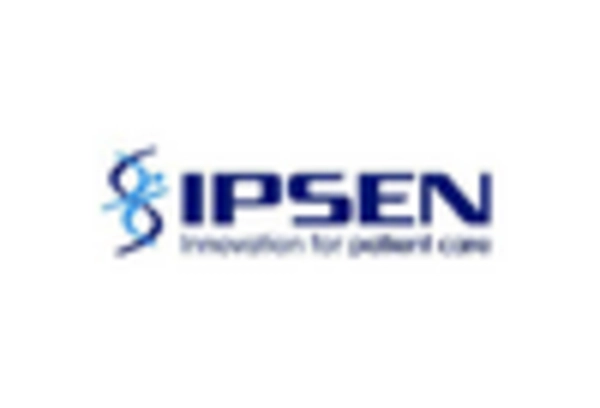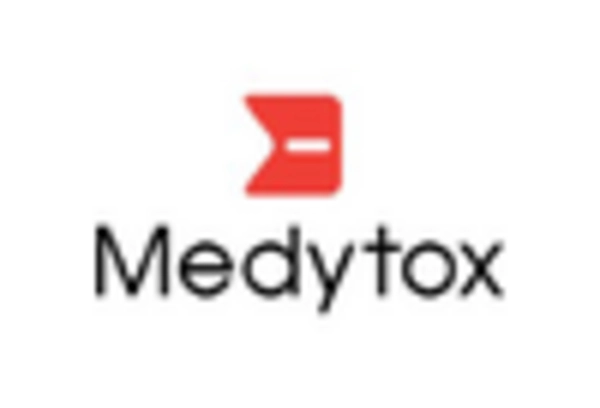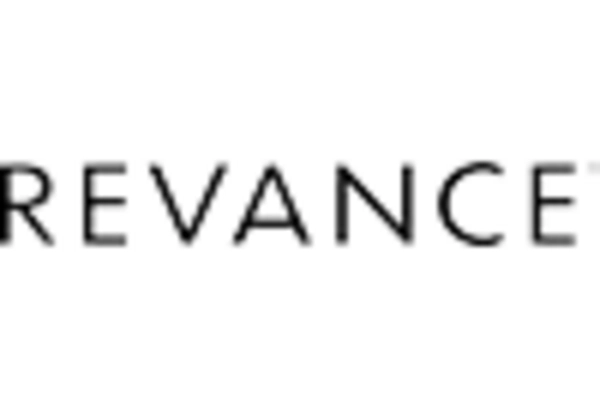Increasing Awareness of Aesthetic Treatments
The Non-energy-based Aesthetic Device Market is experiencing a notable surge in awareness regarding aesthetic treatments. As consumers become more informed about the benefits of non-invasive procedures, the demand for such devices is likely to rise. This heightened awareness is driven by various factors, including educational campaigns and the proliferation of information through digital platforms. Reports indicate that the market for non-energy-based aesthetic devices is projected to grow at a compound annual growth rate of approximately 8% over the next five years. This growth suggests that as more individuals seek to enhance their appearance without the need for surgical interventions, the Non-energy-based Aesthetic Device Market will continue to expand, catering to a diverse clientele.
Rising Disposable Incomes and Consumer Spending
The Non-energy-based Aesthetic Device Market is benefiting from rising disposable incomes, which enable consumers to allocate more funds towards personal care and aesthetic treatments. As economic conditions improve in various regions, individuals are increasingly willing to invest in non-invasive procedures that enhance their appearance. This trend is particularly evident in emerging markets, where a growing middle class is driving demand for aesthetic solutions. Market analysts suggest that the increase in consumer spending on beauty and wellness products will further bolster the Non-energy-based Aesthetic Device Market, leading to a broader acceptance of aesthetic treatments as a standard part of personal grooming.
Advancements in Product Offerings and Techniques
The Non-energy-based Aesthetic Device Market is characterized by continuous advancements in product offerings and techniques. Innovations in formulations and application methods are enhancing the efficacy and safety of non-invasive treatments. For instance, the introduction of new dermal fillers and skin rejuvenation products is expanding the range of options available to consumers. Additionally, training and education for practitioners are improving the quality of treatments provided. This evolution in the market suggests that as new technologies emerge, the Non-energy-based Aesthetic Device Market will likely experience increased consumer confidence and demand, further propelling its growth.
Aging Population and Demand for Aesthetic Solutions
The demographic shift towards an aging population is significantly influencing the Non-energy-based Aesthetic Device Market. As individuals age, they often seek solutions to address skin laxity, wrinkles, and other signs of aging. This trend is particularly pronounced among the baby boomer generation, which is increasingly investing in aesthetic treatments to maintain a youthful appearance. Market data indicates that the demand for non-energy-based devices, such as dermal fillers and chemical peels, is expected to rise as this demographic continues to prioritize self-care and aesthetic enhancement. Consequently, the Non-energy-based Aesthetic Device Market is likely to see sustained growth as it adapts to the needs of an aging clientele.
Influence of Celebrity Endorsements and Social Trends
The Non-energy-based Aesthetic Device Market is significantly impacted by celebrity endorsements and prevailing social trends. As public figures openly discuss their use of aesthetic treatments, societal perceptions of these procedures are shifting. This cultural acceptance is encouraging more individuals to consider non-invasive options for enhancing their appearance. Furthermore, social media platforms play a crucial role in shaping beauty standards and trends, leading to increased visibility for non-energy-based aesthetic devices. As a result, the market is likely to witness a surge in demand, driven by the desire to emulate the looks of admired celebrities and influencers.


